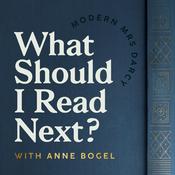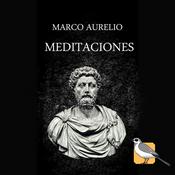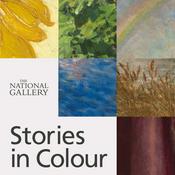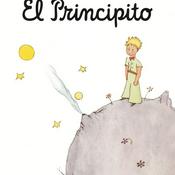144 episodios

Partnerships between farmers and conservationists are helping restore biodiversity
28/8/2025 | 3 min

Positive data shows global forest cover increasing in countries with strong policies
28/8/2025 | 2 min

Community river festivals are combining culture with ecological restoration efforts
28/8/2025 | 2 min

New global seed vault initiatives are safeguarding plant diversity for future generations
28/8/2025 | 3 min

Wildlife documentaries are increasing awareness and sparking conservation action
28/8/2025 | 4 min
Más podcasts de Arte
Podcasts a la moda de Arte
Acerca de Pride and Prejudice
Walt Whitman has somewhere a fine and just distinction between “loving by allowance” and “loving with personal love.” This distinction applies to books as well as to men and women; and in the case of the not very numerous authors who are the objects of the personal affection, it brings a curious consequence with it. There is much more difference as to their best work than in the case of those others who are loved “by allowance” by convention, and because it is felt to be the right and proper thing to love them. And in the sect—fairly large and yet unusually choice—of Austenians or Janites, there would probably be found partisans of the claim to primacy of almost every one of the novels. To some the delightful freshness and humour of Northanger Abbey, its completeness, finish, and entrain, obscure the undoubted critical facts that its scale is small, and its scheme, after all, that of burlesque or parody, a kind in which the first rank is reached with difficulty. Persuasion, relatively faint in tone, and not enthralling in interest, has devotees who exalt above all the others its exquisite delicacy and keeping. The catastrophe of Mansfield Park is admittedly theatrical, the hero and heroine are insipid, and the author has almost{x} wickedly destroyed all romantic interest by expressly admitting that Edmund only took Fanny because Mary shocked him, and that Fanny might very likely have taken Crawford if he had been a little more assiduous; yet the matchless rehearsal-scenes and the characters of Mrs. Norris and others have secured, I believe, a considerable party for it. Sense and Sensibility has perhaps the fewest out-and-out admirers; but it does not want them.I suppose, however, that the majority of at least competent votes would, all things considered, be divided between Emma and the present book; and perhaps the vulgar verdict (if indeed a fondness for Miss Austen be not of itself a patent of exemption from any possible charge of vulgarity) would go for Emma. It is the larger, the more varied, the more popular; the author had by the time of its composition seen rather more of the world, and had improved her general, though not her most peculiar and characteristic dialogue; such figures as Miss Bates, as the Eltons, cannot but unite the suffrages of everybody. On the other hand, I, for my part, declare for Pride and Prejudice unhesitatingly. It seems to me the most perfect, the most characteristic, the most eminently quintessential of its author’s works; and for this contention in such narrow space as is permitted to me, I propose here to show cause.In the first place, the book (it may be barely necessary to remind the reader) was in its first shape written very early, somewhere about 1796, when Miss Austen was barely twenty-one; though it was revised and finished at Chawton some fifteen years later, and was not published till 1813, only four years before her death. I do not know whether, in{xi} this combination of the fresh and vigorous projection of youth, and the critical revision of middle life, there may be traced the distinct superiority in point of construction, which, as it seems to me, it possesses over all the others. The plot, though not elaborate, is almost regular enough for Fielding; hardly a character, hardly an incident could be retrenched without loss to the story. The elopement of Lydia and Wickham is not, like that of Crawford and Mrs. Rushworth, a coup de théâtre; it connects itself in the strictest way with the course of the story earlier, and brings about the denouement with complete propriety. All the minor passages—the loves of Jane and Bingley, the advent of Mr. Collins, the visit to Hunsford, the Derbyshire tour—fit in after the same unostentatious, but masterly fashion. There is no attempt at the hide-and-seek, in-and-out business, which in the transactions between Frank Churchill and Jane Fairfax contributes no doubt a good deal to the intrigue of Emma, but contributes it in a fashion which I do not think the best feature of that otherwise admirable book. Although Miss Austen always liked something of the misunderstanding kind, which afforded her opportunities for the display of the peculiar and incomparable talent to be noticed presently, she has been satisfied here with the perfectly natural occasions provided by the false account of Darcy’s conduct given by Wickham, and by the awkwardness (arising with equal naturalness) from the gradual transformation of Elizabeth’s own feelings from positive aversion to actual love. I do not know whether the all-grasping hand of the playwright has ever been laid upon Pride and Prejudice; and I dare say that,{xii} if it were, the situations would prove not startling or garish enough for the footlights, the character-scheme too subtle and delicate for pit and gallery. But if the attempt were made, it would certainly not be hampered by any of those loosenesses of construction, which, sometimes disguised by the conveniences of which the novelist can avail himself, appear at once on the stage.I think, however, though the thought will doubtless seem heretical to more than one school of critics, that construction is not the highest merit, the choicest gift, of the novelist. It sets off his other gifts and graces most advantageously to the critical eye; and the want of it will sometimes mar those graces—appreciably, though not quite consciously—to eyes by no means ultra-critical. But a very badly-built novel which excelled in pathetic or humorous character, or which displayed consummate command of dialogue—perhaps the rarest of all faculties—would be an infinitely better thing than a faultless plot acted and told by puppets with pebbles in their mouths. And despite the ability which Miss Austen has shown in working out the story, I for one should put Pride and Prejudice far lower if it did not contain what seem to me the very masterpieces of Miss Austen’s humour and of her faculty of character-creation—masterpieces who may indeed admit John Thorpe, the Eltons, Mrs. Norris, and one or two others to their company, but who, in one instance certainly, and perhaps in others, are still superior to them.The characteristics of Miss Austen’s humour are so subtle and delicate that they are, perhaps, at all times easier to apprehend than to express, and at any particular{xiii} time likely to be differently apprehended by different persons. To me this humour seems to possess a greater affinity, on the whole, to that of Addison than to any other of the numerous species of this great British genus. The differences of scheme, of time, of subject, of literary convention, are, of course, obvious enough; the difference of sex does not, perhaps, count for much, for there was a distinctly feminine element in “Mr. Spectator,” and in Jane Austen’s genius there was, though nothing mannish, much that was masculine. But the likeness of quality consists in a great number of common subdivisions of quality—demureness, extreme minuteness of touch, avoidance of loud tones and glaring effects. Also there is in both a certain not inhuman or unamiable cruelty. It is the custom with those who judge grossly to contrast the good nature of Addison with the savagery of Swift, the mildness of Miss Austen with the boisterousness of Fielding and Smollett, even with the ferocious practical jokes that her immediate predecessor, Miss Burney, allowed without very much protest. Yet, both in Mr. Addison and in Miss Austen there is, though a restrained and well-mannered, an insatiable and ruthless delight in roasting and cutting up a fool. A man in the early eighteenth century, of course, could push this taste further than a lady in the early nineteenth; and no doubt Miss Austen’s principles, as well as her heart, would have shrunk from such things as the letter from the unfortunate husband in the Spectator, who describes, with all the gusto and all the innocence in the world, how his wife and his friend induce him to play at blind-man’s-buff. But another Spectator letter—that of the damsel of fourteen who{xiv} wishes to marry Mr. Shapely, and assures her selected Mentor that “he admires your Spectators mightily”—might have been written by a rather more ladylike and intelligent Lydia Bennet in the days of Lydia’s great-grandmother; while, on the other hand, some (I think unreasonably) have found “cynicism” in touches of Miss Austen’s own, such as her satire of Mrs. Musgrove’s self-deceiving regrets over her son. But this word “cynical” is one of the most misused in the English language, especially when, by a glaring and gratuitous falsification of its original sense, it is applied, not to rough and snarling invective, but to gentle and oblique satire. If cynicism means the perception of “the other side,” the sense of “the accepted hells beneath,” the consciousness that motives are nearly always mixed, and that to seem is not identical with to be—if this be cynicism, then every man and woman who is not a fool, who does not care to live in a fool’s paradise, who has knowledge of nature and the world and life, is a cynic. And in that sense Miss Austen certainly was one. She may even have been one in the further sense that, like her own Mr. Bennet, she took an epicurean delight in dissecting, in displaying, in setting at work her fools and her mean persons. I think she did take this delight, and I do not think at all the worse of her for it as a woman, while she was immensely the better for it as an artist.In respect of her art generally, Mr. Goldwin Smith has truly observed that “metaphor has been exhausted in depicting the perfection of it, combined with the narrowness of her field;” and he has justly added that we need not go beyond her own comparison to the art of a miniature{xv} painter. To make this latter obser
Sitio web del podcastEscucha Pride and Prejudice, Cháchara Literaria y muchos más podcasts de todo el mundo con la aplicación de radio.net
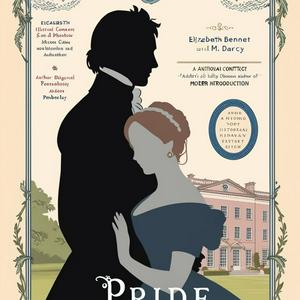
Descarga la app gratuita: radio.net
- Añadir radios y podcasts a favoritos
- Transmisión por Wi-Fi y Bluetooth
- Carplay & Android Auto compatible
- Muchas otras funciones de la app
Descarga la app gratuita: radio.net
- Añadir radios y podcasts a favoritos
- Transmisión por Wi-Fi y Bluetooth
- Carplay & Android Auto compatible
- Muchas otras funciones de la app


Pride and Prejudice
Escanea el código,
Descarga la app,
Escucha.
Descarga la app,
Escucha.













